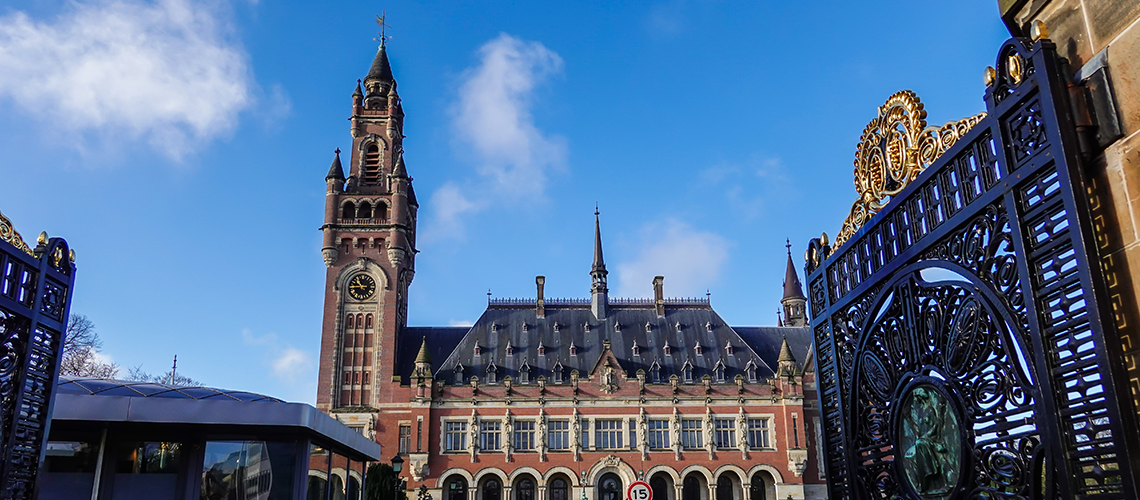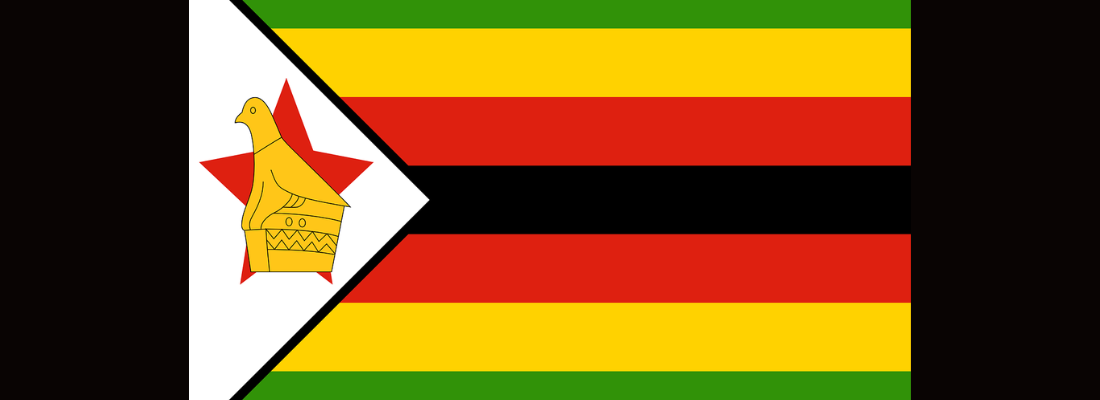Israel-Gaza: the International Court of Justice wields soft power
Anne McMillanThursday 7 March 2024

On 26 January, the International Court of Justice (ICJ or ‘the Court’) delivered a landmark interim ruling in a case, brought by South Africa, which found it to be ‘plausible’ that Israel is violating its obligations under the Genocide Convention regarding the situation in Gaza. The Court ordered Israel to implement six provisional measures, which are binding legal obligations in international law. ‘The fact that the ICJ ruled that it is plausible that Israel is committing, inciting or failing to prevent a Genocide is highly significant’, says Toby Cadman, Secretary of the IBA’s War Crimes Committee.
What is also significant is that decisions on each of the six provisional measures ordered were reached by an overwhelming majority of the judges (15 to two or 16 to one). The ICJ judges come from a range of countries, some holding opposite views on the Gaza conflict. For example, the President of the Court was American, the Vice-President Russian and there were ad hoc judges from South Africa and Israel. In total, four of the judges were nationals of one of the five permanent member states of the UN Security Council.
Anne Ramberg, Co-Chair of the IBA’s Human Rights Institute and ad hoc judge at the European Court of Human Rights, suggests that the broad cross-section bolsters the Court’s legitimacy. ‘The rulings of the ICJ are highly respected within the international community and the objectivity of each judge, the spread of nationalities, and the number of states involved, ensures that the correct outcome is determined,’ she says. ‘This outcome may assist in persuading the UN Security Council to take action.’
Whatever action may follow the Court’s ruling, it has been criticised by some for not going further and ordering a ceasefire in its original provisional measures. Ramberg thinks the international community had already made its voice heard on the issue: ‘While the provisional measures of the ICJ were impactful, the ICJ should have added their voice to the global call for an immediate ceasefire in line with the resolution of the UN General Assembly of December 2023 […] That said, the ICJ has only jurisdiction over states and not over acts committed by Hamas.’ Mandating a one-sided ceasefire could have been controversial both legally and politically, potentially being seen by some as undermining Israel’s right to self-defence.
The rulings of the ICJ are highly respected. This outcome may assist in persuading the UN Security Council to take action
Anne Ramberg
Co-Chair, IBA Human Rights Institute
The ICJ’s decision has also sent a clear message to governments worldwide: parties to the Genocide Convention have an obligation to prevent genocide beyond their own borders. It is a warning to countries that their support for Israel may ultimately be found to be contrary to their treaty obligations. Dr Ardi Imseis, Professor of International Law at Queen’s University and member of the Palestinian legal team at the ICJ advisory opinion proceedings, notes: ‘This means that these states, especially those with relations with Israel, must utilise whatever power they have to incentivise Israel to cease course,’ he says. ‘This includes diplomatic, economic, cultural and political boycott, as well as pursuit of actions against individual Israelis in the domestic courts of these third states.’
National courts are also taking notice. On 12 February, a Dutch appeals court blocked the sale to Israel of F-35 fighter jet parts due to the risk that they may be used to commit serious violations of international humanitarian law. In another development, the US announced that all countries receiving US military aid will be obliged to provide written assurances that they are complying with international law, with such obligations to be reported upon by the US State Department and the Department of Defense. There have been further developments at the ICJ: on 1 March Nicaragua instituted proceedings against Germany for its financial, political and military support of Israel which it argued constituted serious breaches of international law.
Nevertheless, the broad consensus among the UN and humanitarian organisations operating on the ground is that little has changed in Gaza since the ICJ decision. Referring to the Court’s ruling which ordered Israel to prevent genocidal acts in Gaza and to allow humanitarian aid into the territory, a joint statement by various human rights and humanitarian organisations on 15 February affirmed that ‘not only has this not happened, the situation on the ground has deteriorated further’. Reports from various sources confirm that civilian casualties are mounting as famine looms in Gaza. ‘The deliberate starvation of civilians is not an act of self-defence but a method of warfare, in breach of Israel’s international obligations,’ says Ramberg. ‘This has been recognised by the ICJ and should be understood by the global community.’
The impact of the ICJ ruling on Israel’s military and political leadership appeared to be negligible. Indeed, only days after the ICJ order was issued a conference in Jerusalem, attended by Israeli government parliamentarians, including 11 cabinet ministers, heard calls for Israeli settlement of the Gaza strip and the ‘voluntary’ migration of Palestinians. The UK was ‘alarmed’, the US was ‘troubled’ by ‘incendiary and irresponsible’ rhetoric, and France reiterated ‘that the International Court of Justice recently set out Israel’s obligation to take all measures within its power to prevent and punish this kind of rhetoric [...]’. Cadman concludes of compliance with the ICJ order that ‘it is disappointing to see that it has not deterred Israel which appears to be operating with complete impunity and has failed to respect the provisional measures’.
The spotlight has, nevertheless, remained on Israel. In February, the ICJ held a week-long hearing in response to an earlier request by the UN General Assembly for an Advisory Opinion on the legal consequences of Israel’s policies and practices in the Occupied Territories. Over 50 states presented oral arguments, the vast majority critical of Israeli actions. Israel itself rejected the jurisdiction of the Court in this case, suggesting the General Assembly request was ‘ pointing a finger at one side only’ and therefore portraying the Israeli–Palestinian conflict as ‘a cartoon narrative of villain and victim in which there are no Israeli rights and no Palestinian obligations.’ Global Insight contacted Israel’s government for comment but received no reply.
The ICJ had, however, taken pains to emphasise the background to the violence in its order of 26 January: ‘‘The Court begins by recalling the immediate context in which the present case came before it. On 7 October 2023, Hamas and other armed groups present in the Gaza Strip carried out an attack in Israel, killing more than 1,200 persons, injuring thousands and abducting some 240 people, many of whom continue to be held hostage. The Court also called for the ‘immediate and unconditional release’ of Israeli hostages.
When vast numbers of civilians are being harmed and the states obligations of states under international law are being flouted, the ICJ’s increasing willingness to intervene in conflicts, and particularly its power to order short-term measures, is both necessary and welcome. As Cadman observes: ‘The ICJ is certainly leading the way in intervention […] We have seen it in Ukraine, Syria and now Palestine and we are likely to see more situations being litigated for breaches of treaty obligations.’
It remains to be seen, though, whether effective diplomatic action at the UN, or elsewhere, will follow so that legal rulings, which hitherto looked unlikely to be implemented, may finally be transformed into facts on the ground. In the opinion of Imseis ‘international law helps shape what is regarded as politically legitimate in the UN system and between states, what the ICJ determines will therefore have political consequences.’
To that end, the ICJ’s oversight of the war in Gaza is continuing. ‘Israel is required to submit a report to the Court on the steps it has taken to comply with the orders within one month of the ruling,’ says Ramberg. ‘Therefore, there is a mechanism by which the ICJ can monitor the implementation process.’
The confidential report was submitted on 26 February. What follows will be important. Not only is Israel’s reputation at stake, but also that of the international legal order. Cadman poses a pivotal question: if the international legal order can be scorned, and thousands of civilians left to die as a result, what point do the various international treaties serve other than a piece of paper to wave and vent our frustrations?’
Image credit: Alexander/AdobeStock.com


